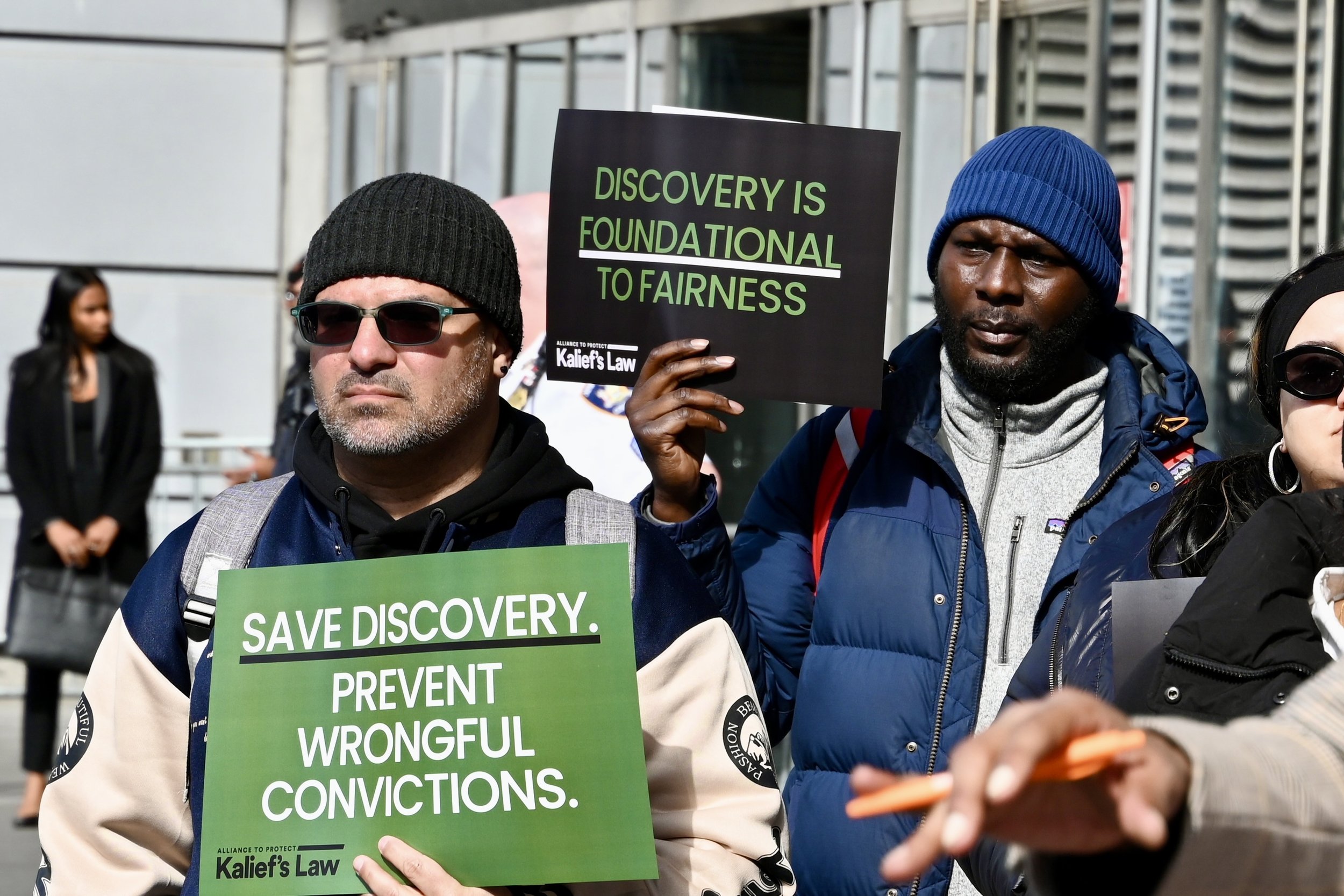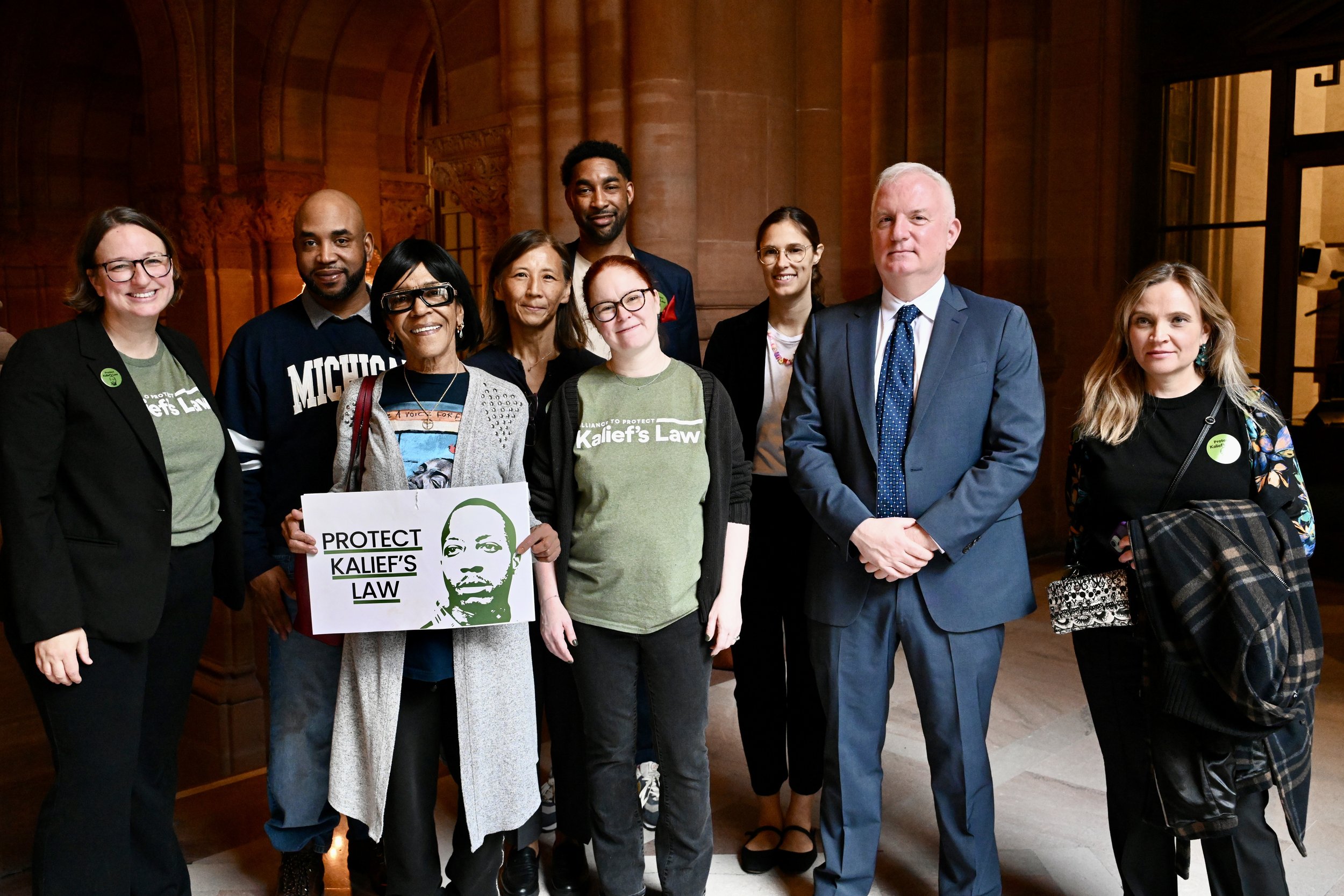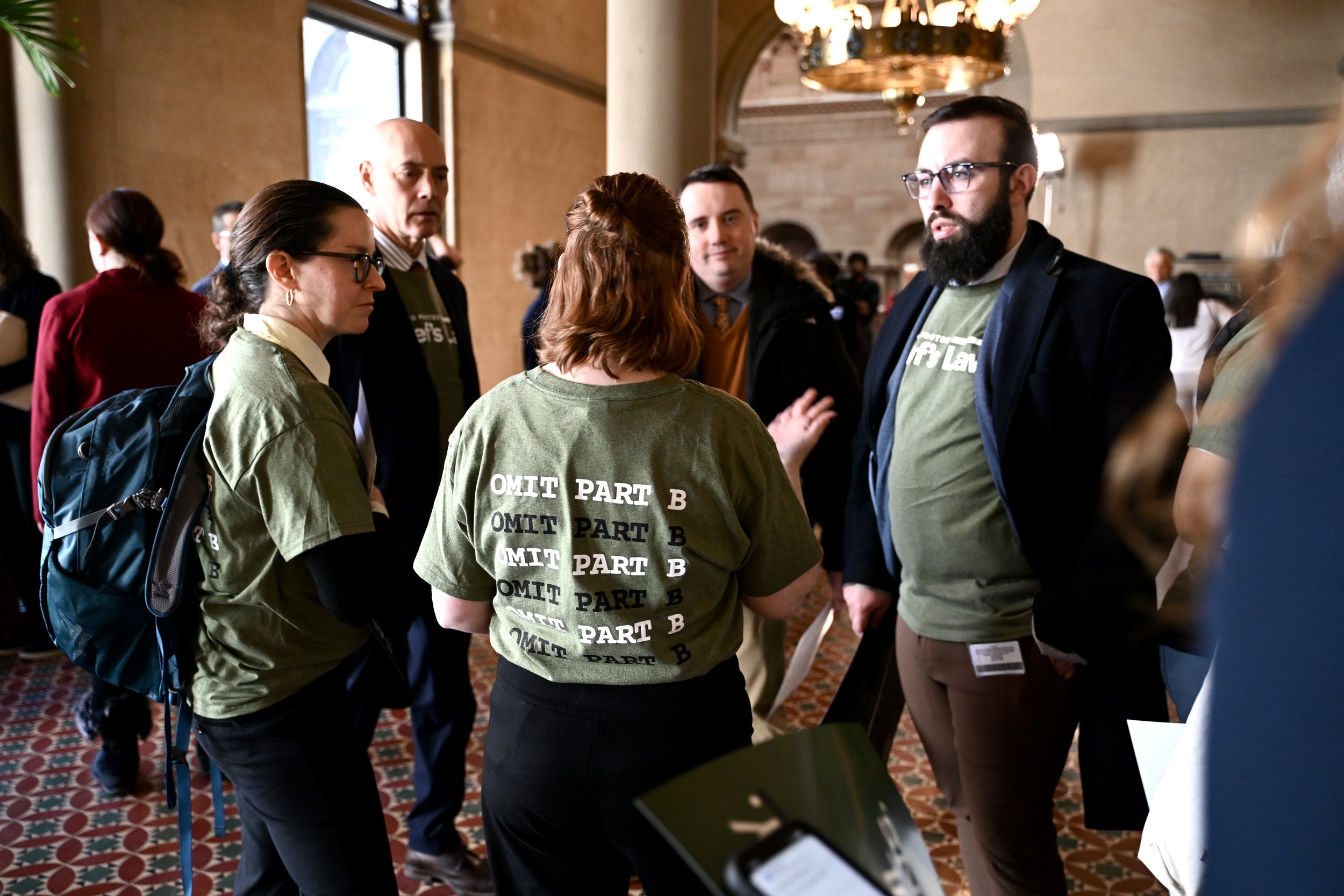NEW YORK’S LANDMARK DISCOVERY LAWS ARE A SUCCESS

DOWNLOAD THE FACTS
The 2020 discovery laws were carefully drafted over the course of nearly a decade of conversation with input from impacted people, prosecutors and defense lawyers, policymakers, and experts to ensure that they create transparency and fairness in the system.
The Governor’s current proposal has been informed by only one side - the prosecution.
For evidence sharing laws to be effective, they have to be complete.
The existing 2019 laws promote transparency & basic fairness and prevent wrongful convictions. They DO NOT lead to increased recidivism or undue dismissal of cases.

The 2020 discovery laws have not had an outsized impact on domestic violence cases.
Read the letter from over twenty survivors’ groups in support of existing discovery laws.
Learn more about how existing discovery laws protect survivors.
DEBUNKING DISCOVERY MYTHS
At a State hearing, several myths about discovery were debunked by New York’s Chief Administrative Judge.
Defense attorneys are NOT gaming the system.
Serious cases are NOT being dismissed due to Kalief’s Law.
Without firm deadlines to share evidence, New Yorkers cannot get a fair and speedy trial.
Cases are NOT being “automatically dismissed” if evidence is not turned over.
-
Promoting Transparency & Basic Fairness
Prior to these laws being enacted, cases would drag on for years without people having access to the evidence against them, leading to wrongful convictions and prolonged pretrial incarceration. These laws sought to correct that and have been successful at increasing transparency and basic fairness in our court system.
-
Preventing Wrongful Convictions & Pretrial Incarceration
According to the National Registry of Exonerations, evidence had been withheld in 204 of New York state’s 359 exonerations. New York’s current discovery laws remove any confusion about which evidence must be turned over and when, preventing huge miscarriages of justice where the innocent are convicted and the people who committed serious, violent crimes remain undetected.
-
Not Leading to Undue Dismissals of Cases
Data from the Office of Court Administration shows that serious cases (indicted felonies prosecuted in superior courts) are not being dismissed at a higher rate in the years since discovery reform was implemented. Any claims otherwise rely on misleading and cherry-picked data points.

